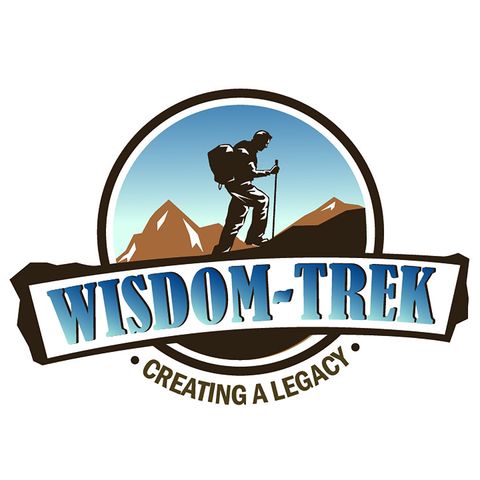Day 1281 – Mastering the Bible – Genealogies – Worldview Wednesday

Download and listen anywhere
Download your favorite episodes and enjoy them, wherever you are! Sign up or log in now to access offline listening.
Description
Wisdom-Trek / Creating a Legacy Welcome to Day 1281 of our Wisdom-Trek, and thank you for joining me. I am Guthrie Chamberlain, Your Guide to Wisdom Mastering the Bible -...
show moreWelcome to Day 1281 of our Wisdom-Trek, and thank you for joining me.
I am Guthrie Chamberlain, Your Guide to Wisdom
Mastering the Bible - Genealogies - Worldview Wednesday
Wisdom - the final frontier to true knowledge. Welcome to Wisdom-Trek! Where our mission is to create a legacy of wisdom, to seek out discernment and insights, to boldly grow where few have chosen to grow before. Hello, my friend, I am Guthrie Chamberlain, your captain on our journey to increase Wisdom and Create a Living Legacy. Thank you for joining us today as we explore wisdom on our 2nd millennium of podcasts. This is Day 1281 of our Trek, and it is Worldview Wednesday. Creating a Biblical Worldview is important to have a proper perspective on today’s current events. To establish a Biblical Worldview, it is required that you also have a proper understanding of God and His Word. Our focus for the next several months on Worldview Wednesday is Mastering the Bible, through a series of brief insights. These insights are extracted from a book of the same title from one of today’s most prominent Hebrew Scholars, Dr. Micheal S. Heiser. This book is a collection of insights designed to help you understand the Bible better. When we let the Bible be what it is, we can understand it as the original readers did, and as its writers intended. Each week we will explore two insights.
Mastering The Bible – Genealogies
Insight Twenty-Three: Old Testament Genealogies Were Not Intended to Be Precise Indicators of the Age of the EarthThe genealogies of Genesis 5 are significant for understanding the Old Testament, but not in the way they are often referenced.
Since the seventeenth century, Bible readers have presumed that the genealogies of the Old Testament were written to provide a chronology for the history of the world. That notion was popularized in 1650 with the publication of Bishop James Ussher’s “Annals of the Old Testament, deduced from the first origins of the world”- Ussher’s chronology used the genealogies to date the creation of the world to October 23, 4004 BC.
There are many problems with Ussher’s chronology. It would, for example, put the flood at the time of the building of the Great Pyramid at Giza. Even if the flood was a regional and not a global event, it would have made the construction of this pyramid unworkable due to its proximity to the Nile and the Nile Delta. Egyptian records prior to and after the Great Pyramid’s construction say nothing about a great flood during this time.
However, the real problems with Ussher’s work are biblical. Ussher was unaware of certain things that are common knowledge in biblical scholarship today. For example, manuscripts of the Hebrew Bible do not all agree when it comes to the genealogical sequence or year numbers of the preflood individuals listed in Genesis 5. The sequence of the generations in Genesis 4 and 5 is also not identical. This has led scholars over the years to propose that the genealogies are selective, which is obvious from the genealogies of Jesus in the New Testament.
While gaps are possible, there are other issues that speak to a deliberate construction of the genealogies. Several scholars have proposed that the year numbers in Genesis 5 have a mathematical explanation—in effect, a cipher or code- meant to telegraph information about the individuals in the list. However, none of the proposals has won a consensus of acceptance. Another approach has observed that genealogies from contemporary literature follow a pattern evident in Genesis 5. Specifically, several genealogies from the Old Babylonian period arrange names by tens even when the results do not account for people known from other sources to have lived in the same periods. In Genesis 5, there are ten generations before the flood, and ten after the flood. The listing may,
Information
| Author | Harold Guthrie Chamberlain III |
| Organization | Harold Guthrie Chamberlain III |
| Website | - |
| Tags |
Copyright 2024 - Spreaker Inc. an iHeartMedia Company

Comments